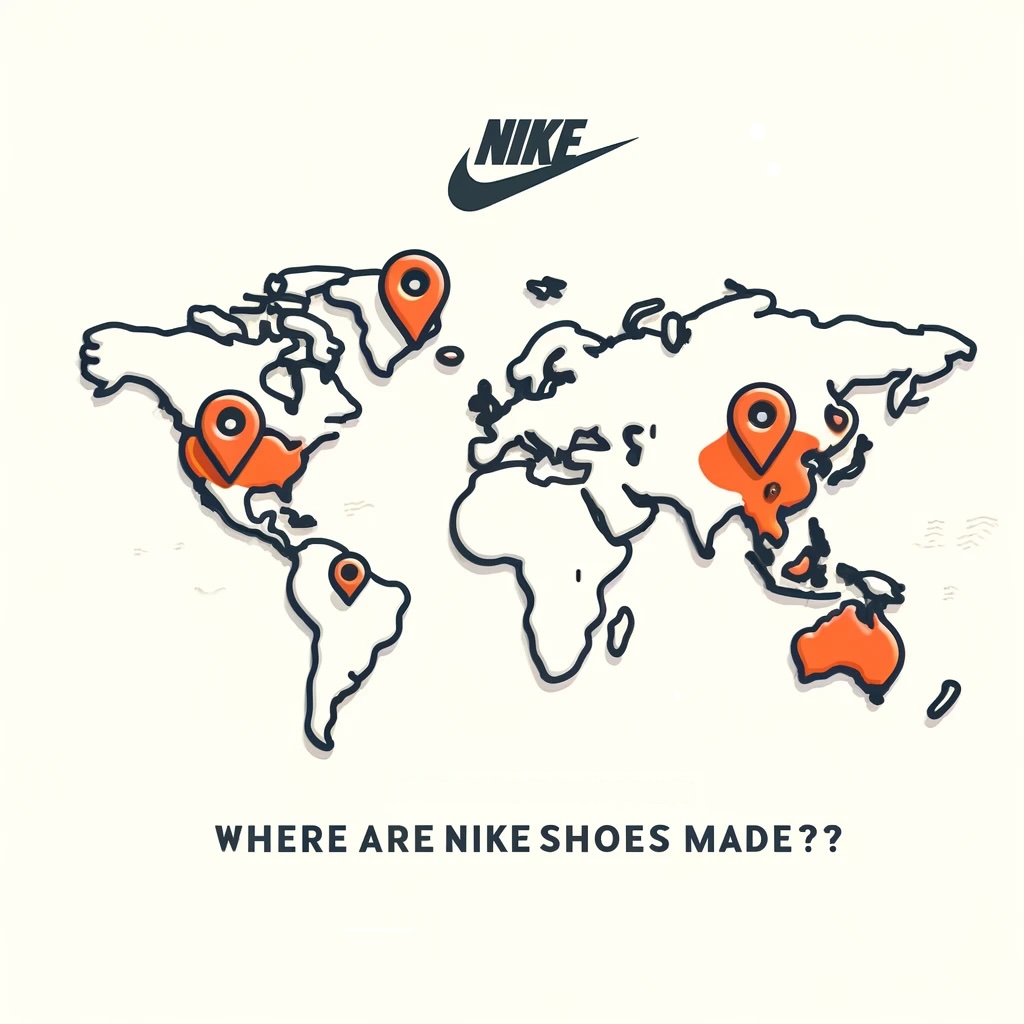Nike shoes are produced across multiple continents, focusing heavily on Asia. This article explores Nike’s global production network in 2023, revealing where their iconic sneakers are crafted.
The Manufacturing Powerhouses: Vietnam, Indonesia, and China
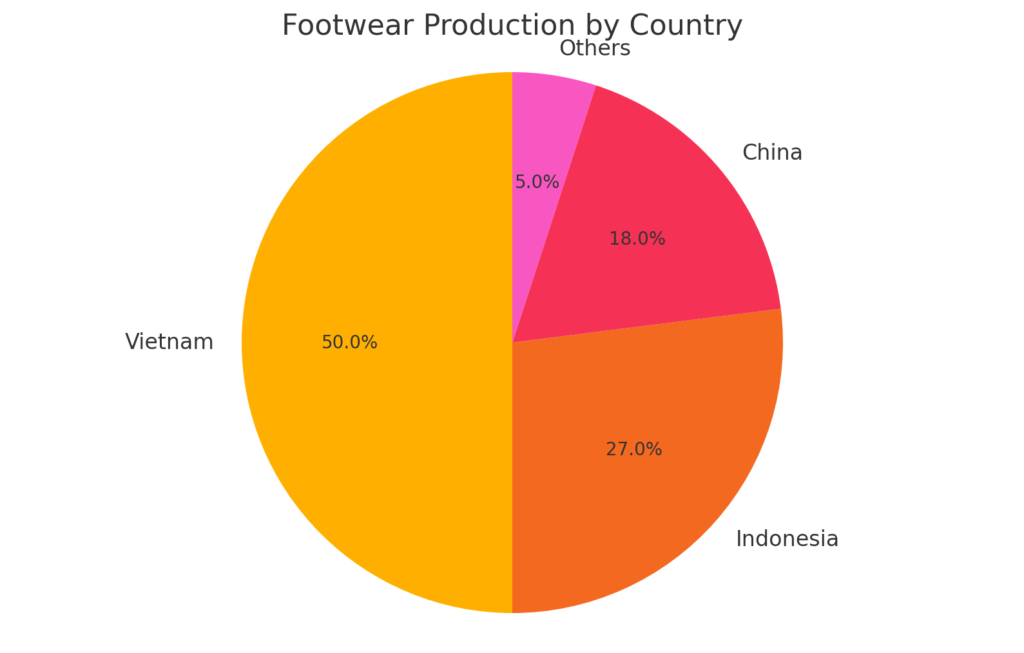
As of 2023, Nike’s primary manufacturing locations are:
- Vietnam: Produces 50% of Nike’s footwear.
- Indonesia: Responsible for 27% of footwear production.
- China: Accounts for 18% of Nike’s footwear.
Apparel Production
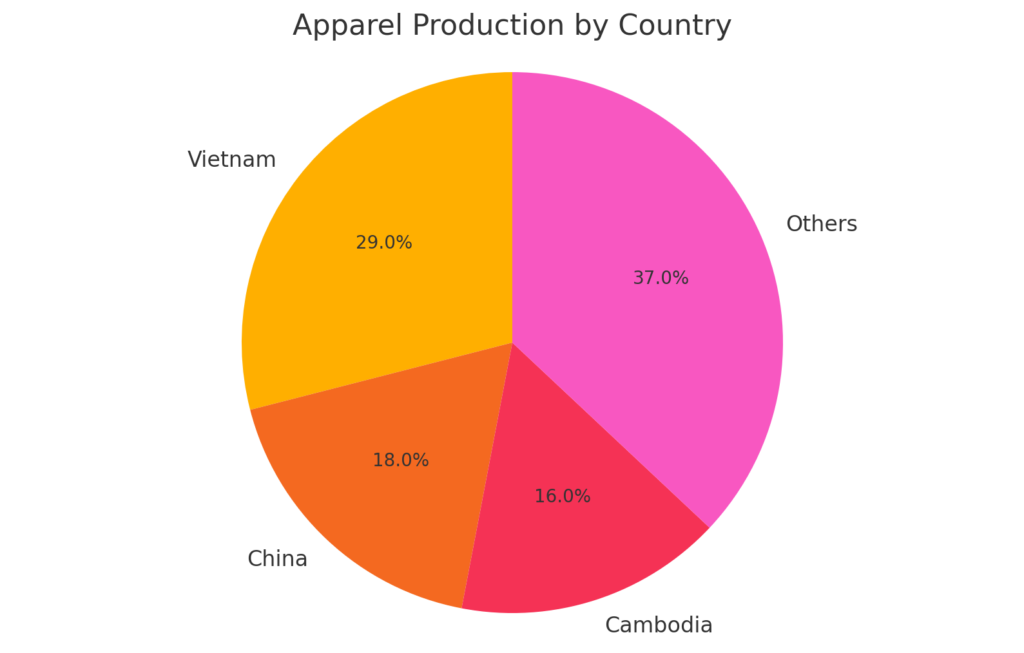
Nike’s apparel is predominantly manufactured in:
- Vietnam: 29% of total apparel production.
- China: 18% of apparel.
- Cambodia: 16% of apparel.
Transparency and Scale
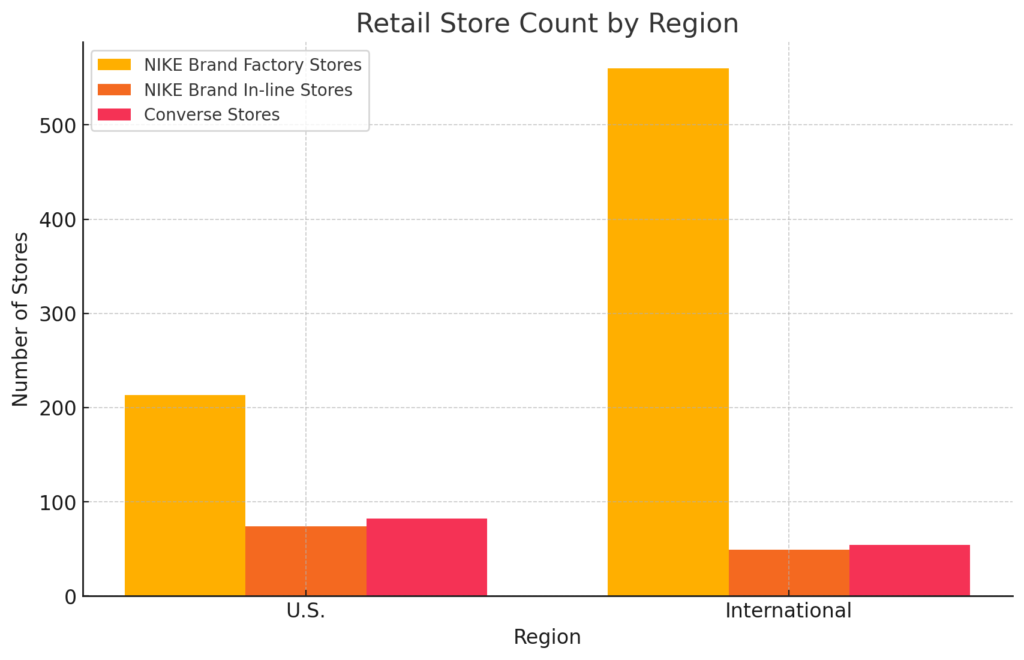
Nike operates through a vast network of factories:
- Footwear Factories: 123 across 11 countries.
- Apparel Factories: 291 across 31 countries.
- Strategic Tier 2 Suppliers: 146.
Strategic Manufacturing Shifts
While Asia remains central to Nike’s production, the company is expanding its manufacturing footprint globally. This diversification aims to optimize the supply chain and mitigate risks, ensuring proximity to key markets and enhancing operational resilience.
Sustainability Initiatives
Nike continues to focus on sustainable practices:
- Eco-friendly Materials: Increased use of recycled materials in products.
- Energy Efficiency: Implementation of energy-saving technologies in factories.
- Water Conservation: Programs to reduce water usage in manufacturing processes.
Supply Chain Management
Nike’s supply chain management includes:
- Advanced Analytics: Using data to predict demand and optimize inventory.
- Supplier Partnerships: Strengthening relationships with long-term suppliers.
- Logistics Optimization: Enhancing distribution networks for faster delivery.
What is Supply Chain Management and Why is it Important?
Supply Chain Management (SCM) oversees the entire production flow of a product, from raw materials to delivery to consumers. It includes sourcing, manufacturing, logistics, distribution, and returns.
Why Supply Chain Management is Important
- Efficiency: Ensures cost-effective production and delivery.
- Quality Control: Maintains high standards at every production stage.
- Flexibility: Quickly adapts to changes in demand and market conditions.
- Sustainability: Reduces waste and promotes eco-friendly practices.
Benefits for Consumers
- Informed Choices: Knowledge of SCM helps consumers choose high-quality products from reliable companies.
- Ethical Buying: Supports companies with fair labor practices and sustainable sourcing.
- Product Availability: Ensures consistent availability and quality of products.
- Better Value: Efficient SCM can lead to lower prices and better value for money.
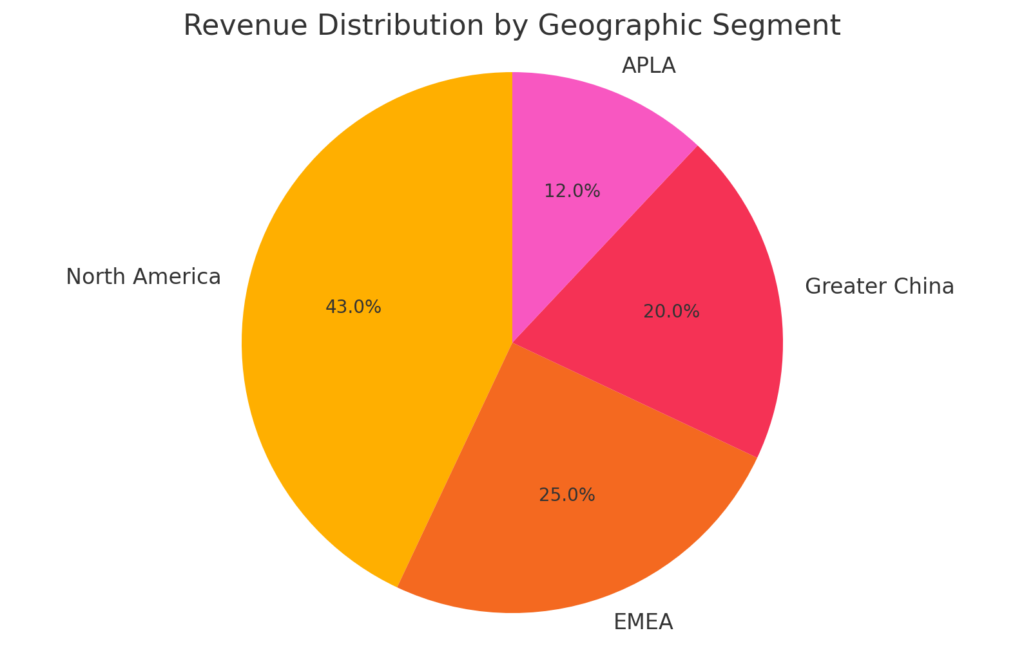
Understanding SCM helps consumers make informed, ethical, and value-driven purchasing decisions.
Alternatives to Nike’s Manufacturing Locations
If you’re interested in how other brands manage their production, here are some comparisons:
- Adidas: Major production in Indonesia, Vietnam, and China. Check our full article here.
- Under Armour: Primarily manufactures in Asia, with increasing production in Latin America.
- Puma: Focuses on Vietnam, Bangladesh, and China for manufacturing.
Conclusion
Nike’s production strategy reflects its commitment to quality, innovation, and global reach. By leveraging the strengths of various manufacturing hubs worldwide, Nike continues to deliver high-performance footwear and apparel to athletes and consumers alike.
Source: Nike Annul Report 2023 10-K
